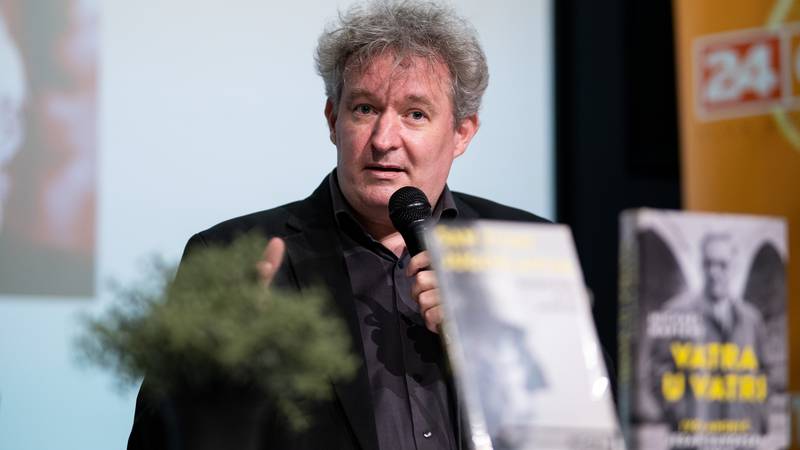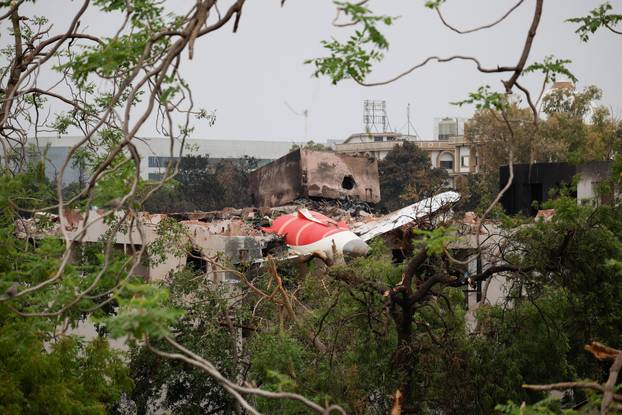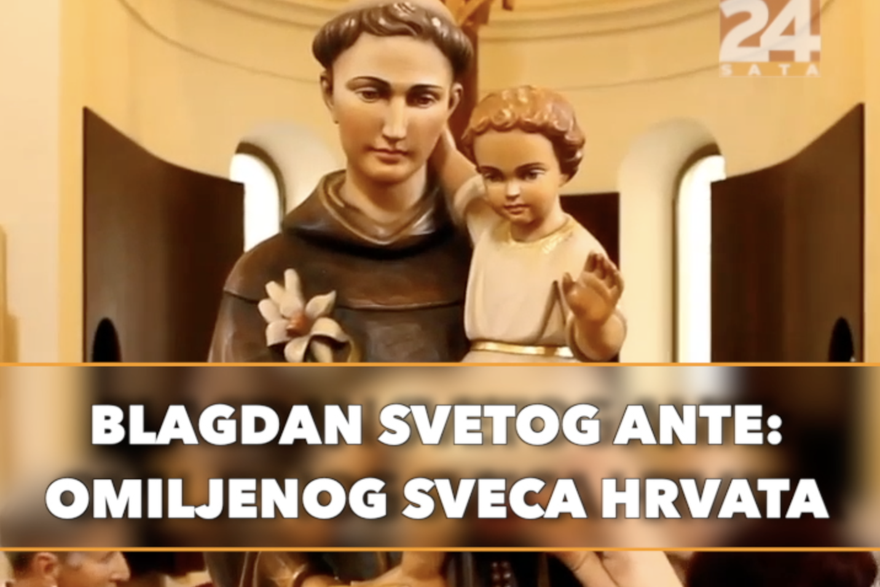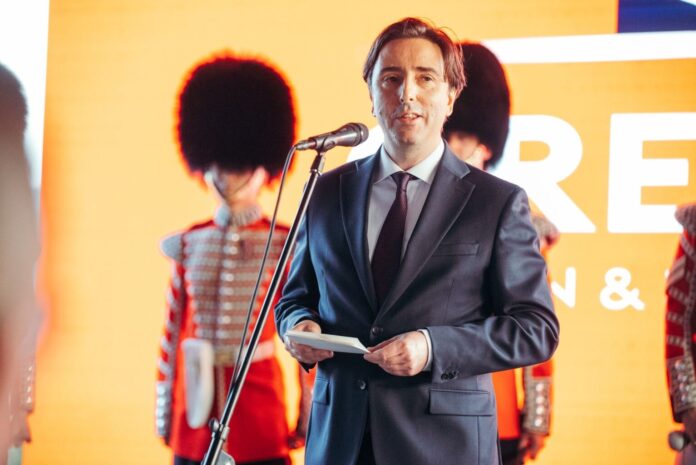German writer Michael Martens at the Zagreb Book Festival: ‘Not History is just that past’

As part of the Zagreb Book Festival, German journalist and writer Michael Martens held a conversation on Thursday called « The Future of the Past » at the Cultural and Information Center (KIC) in Zagreb. The conversation was moderated by journalist Morana Kasapovic, with a simultaneous translation by Ines Meštrović.
Martens, who has been reporting to Southeast Europe for more than two decades for Frankfurter Allgemeine Zeitung, is known for his depth analyzes that link historical events to current events. His interest in this part of the world stems from the belief that the way societies interpret their past significantly forms their present and future.
During the interview, Martens emphasized the importance of understanding the historical context to understand contemporary political and social processes in the region. He emphasized that history is not just a past, but an active element that shapes identity and political decisions. Martens wrote about dealing with his own family past. Specifically, his grandfather was a highly positioned Nazi regime official.
– First of all, the question arises as to how the « highly positioned Nazi regime official » is defined at all. » My grandfather was not a minister or general, but in 1938 Hitler personally appointed him a state prosecutor. I first saw this document with Hitler’s original signature only many years after my grandfather’s death. What I knew about his life was that from 1941 to 1943 he served as an officer at the Supreme Headquarters of Wehrmacht and was repeatedly invited to Hitler’s lunches, where Hitler knew how to keep a long monologue. In his memoirs, his grandfather writes that he accidentally found himself in Hitler’s headquarters. According to his version, one high general attended the military-theoric seminar he organized. The general was reportedly so impressed that a few days later my grandfather got a place in Hitler’s headquarters. At least that’s how the grandfather writes. When I was younger, I believed that story. But the older I am, the more amazing to me. No one « accidentally » ended up in Hitler’s headquarters – Martens said.
Martens’ decision to write about Southeast Europe arose from his fascination with the complex historical and political dynamics of the region. His biography of Ivo Andrić, « In the Fire of Worlds: One European Life, » is the result of a seven -year research and reflects his commitment to understanding and transmitting stories that shape the identity and the fate of this part of Europe.
He also critically referred to the European Union policy towards the Western Balkan countries, pointing out that the perspective of membership for these countries was almost disappeared from the EU focus, which may have long -term consequences for the stability and development of the region.
– The most realistic way to overcome the current blockade of the expansion process, in my opinion, is precisely the idea that the Western Balkan countries are offered access to the unique market – of course, provided they fulfill the necessary criteria. This should also include a full approach to EU structural funds. Membership in a unique market without political membership in the Union is a model that has chosen Norway. And what is attractive to Norway should also be an acceptable model for countries such as Serbia, Kosovo or Northern Macedonia. There are still politicians in the region – for example in Montenegro – who reject this idea and insist that only full political membership is acceptable to their countries. But it’s unrealistic and we admit it before, the better. In the last years, the expansion policy was insincere on both sides: candidate countries were declaratively advocating for reforms, while the EU and its members responded equally to the declarative promises of allegedly open membership perspective, which has not existed for years – said Martens.
Michael Martens wrote a documentary novel « In search of a hero – the story of a soldier who did not want to kill » (2011), a monograph « Fire in the Fire: Ivo Andrić – One European Life » (Naklada Ljevak, 2020) and « San called Yugoslavia – talks about Iva Andrić » (Naklada Ljevak, 2021).
The Zagreb Book Festival takes place from 12th to May 16th, 2025 at the Cultural and Information Center and the Ljevak Bookstore, and this year’s theme is « Time-from memory to vision ». The Zagreb Book Festival 2025 program consists of about twenty literary events that will participate in about fifty domestic and foreign writers. Martin Puchner, Ena Katarina Haler, Eskil Skjeldal, Lea YPI, Ivica Djikic, Ekelund Torbjorn, Dario Harjacek, Michael Martens, Julijana Matanovic, Mario Angel Quinterro, Nina Violic, Zarko Paic, Darko Marcinko, Rajko Grlic, Tomislav Pletenac …
The Zagreb Book Festival has been gathering great minds and fascinating people for ten years – authors, thinkers, artists and scientists who observe the world from different angles. Their stories, books and thoughts encourage the audience to exchange ideas, dialogue and review.





:format(jpeg):fill(f8f8f8,true)/s3/static.nrc.nl/bvhw/wp-content/blogs.dir/114/files/2022/06/vries-marijn-de-2022-05-02-1280-web.png)

